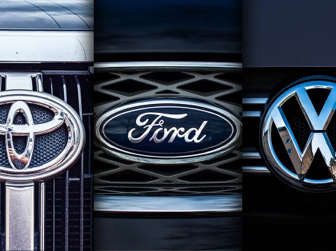There’s some positive news for South Africa’s automotive industry and a significant step for Volkswagen Group Africa. VW's long-term manufacturing plant in Eastern Cape will benefit from a substantial investment, which will focus on producing new VW cars. The new compact SUV project is set to launch in 2027.
Volkswagen’s R4bn project gets the “go-ahead”
A significant R4 Billion investment has been announced for the upcoming lineup, which means preparing the Kariega plant for the third model. Volkswagen South Africa previously mentioned that they had been working to secure production of the third model. Nevertheless, the project has been given the thumbs up.
Recent statements from VWSA have confirmed that the new compact SUV model is already being developed by the Brazil division, with a team of South African engineers who are there to ensure the model adapts to both continental and local standards.
Impact of investment on VW’s car production
VWSA's investment in the new SUV is a proactive measure to ensure future growth and adaptability in a rapidly evolving automotive landscape. The transition to electric vehicles and the discontinuation of the Polo highlight the need for manufacturers to stay agile in their production strategies.
VWSA has confirmed that the upcoming compact SUV will share the same platform as the current Volkswagen Polo hatchback, but it will feature distinct exterior styling to set it apart - stated to sit below the T-Cross.
The design draws heavily from the latest Tiguan, featuring a prominent lower air dam and a sleek upper grille. Additionally, the SUV showcases a rounded front fender that sets it apart from its hatchback counterpart.
The future of VW cars in South Africa
Volkswagen Brazil has unveiled a teaser for a new small SUV set to launch in 2025. According to local media reports, this new model is expected to fit below the T-Cross in their lineup, suggesting that it could be the much-anticipated "third product" for South Africa, as referred to by VWSA representatives.
It wouldn’t come as a surprise if this new SUV surpasses the Polo Vivo as VWSA’s best-selling vehicle after its launch in 2027. Early indications suggest it will be priced very competitively. Currently, the Vivo holds the title of Mzansi’s top-selling passenger car.
Goals and objectives
So far, over R10 billion has been invested in the plant by Volkswagen since 2011. The R4 billion will be spent on upgrading production equipment and quality assurance, as well as training workers.
The overall move towards a compact SUV aims, in part, to reduce reliance on the Volkswagen Polo, which currently makes up about 70% of the cars produced at that plant. The Polo is expected to be phased out by the end of the decade as Europe shifts towards electric vehicles. However, since plans for this transition are constantly evolving, further developments may arise before then.
Where is the automotive industry?
Key impacts of this investment
Support for socioeconomic development: The investment is expected to fortify approximately 3,500 direct jobs at VW, while supporting an estimated 50,000 indirect jobs across the supply chain. This contributes to local economic growth and stability in the Eastern Cape region.
Enhancements to production capacity: By positioning the Kariega plant as the sole global manufacturer of the Polo, VW is not only optimising its production capabilities but also increasing its resilience against global supply chain disruptions.This strategic move is likely to boost vehicle exports, particularly as the new SUV model is planned for both local sales and export to other African markets.
Support for SA suppliers : The investment aligns with the South African government's New Automotive Masterplan, which aims to integrate more local content into vehicle manufacturing. This could lead to increased opportunities for local component manufacturers, fostering a more robust automotive supply ecosystem
Future-proofing: VW's investment is designed to improve production for internal combustion engine (ICE) vehicles. It demonstrates a commitment to meet ongoing demand in markets like South Africa, where petrol-powered vehicles remain the preferred choice for the foreseeable future. Additionally, this investment will likely support local innovations in manufacturing technology, fostering competition in the automotive sector.
Overall, this substantial investment is not only a vote of support for the South African automotive industry, but also a critical step toward strengthening its role in the global market.
(Prices correct at time of publication.)
Meet the new Mitsubishi Triton Bakkie
The priciest number plates in South Africa


